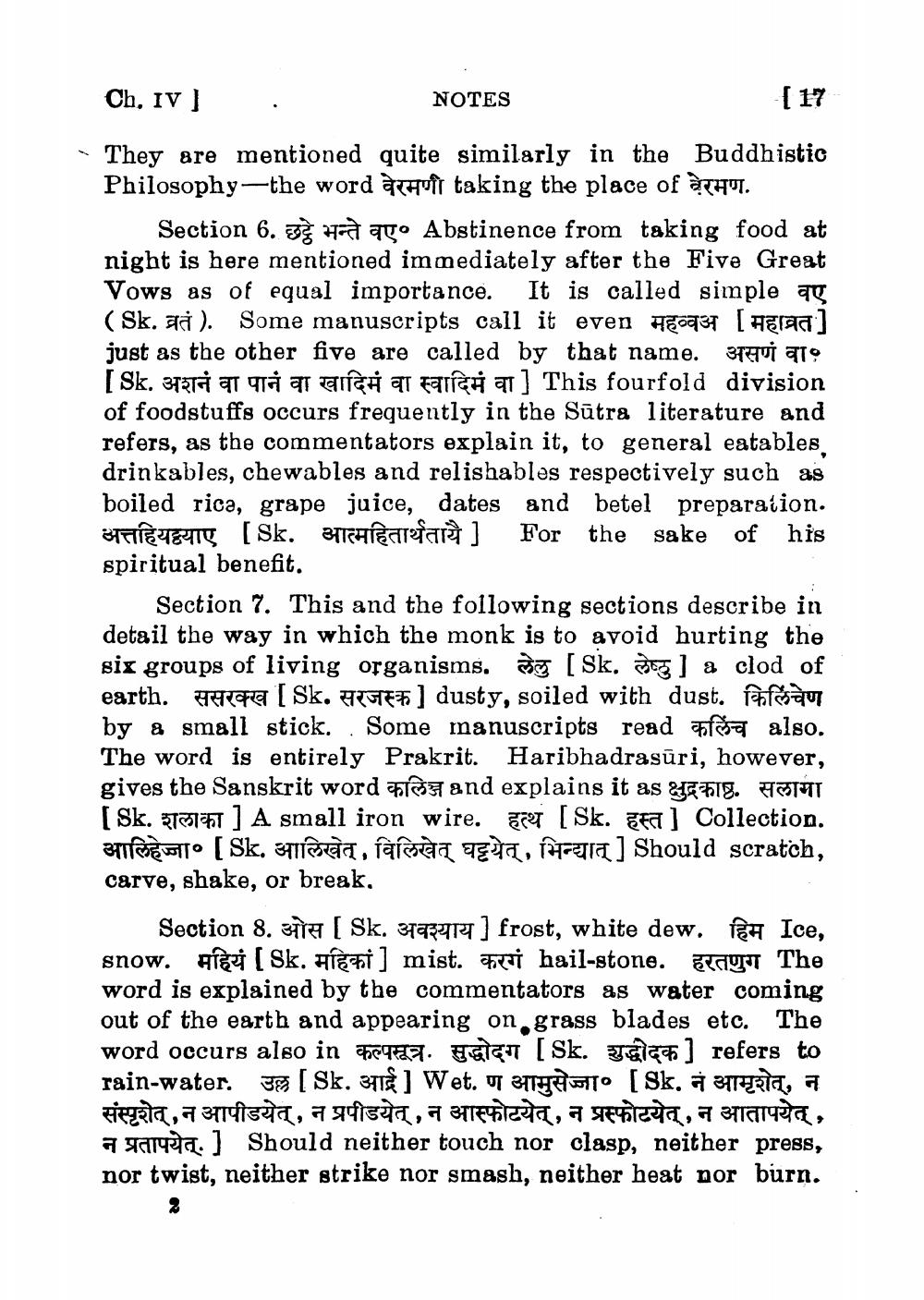________________
Ch. IV ]
They are mentioned quite similarly in the Buddhistic Philosophy—the word वेरमणी taking the place of वेरमण.
NOTES
[17
Section 6.
Abstinence from taking food at night is here mentioned immediately after the Five Great Vows as of equal importance. It is called simple q ( Sk. व्रतं ). Some manuscripts call it even महव्वअ [ महाव्रत ] just as the other five are called by that name. असणं वा ९ [ Sk. अशनं वा पानं वा खादिमं वा स्वादिमं वा ] This fourfold division of foodstuffs occurs frequently in the Sūtra literature and refers, as the commentators explain it, to general eatables drinkables, chewables and relishables respectively such as boiled rica, grape juice, dates and betel preparation. अत्तहिया [Sk. आत्महितार्थतायै ] For the sake of his spiritual benefit.
Section 7. This and the following sections describe in detail the way in which the monk is to avoid hurting the six groups of living organisms. g [Sk. g] a clod of earth. ससरक्ख [ Sk. सरजस्क ] dusty, soiled with dust. किलिंचेण by a small stick. Some manuscripts read also. The word is entirely Prakrit. Haribhadrasūri, however, gives the Sanskrit word कलिञ्ज and explains it as क्षुद्रकाष्ठ सलामा [ Sk. शलाका ] A small iron wire. हत्थ [ Sk. हस्त ] Collection. आलिहेज्जा • [ Sk. आलिखेत्, विलिखेत् घट्टयेत्, भिन्द्यात् ] Should scratch, carve, shake, or break.
Section 8. ओस [ Sk. अवश्याय ] frost, white dew. हिम Ice, snow. महियं [ Sk. महिकां] mist. करगं hail-stone. हरतणुग The word is explained by the commentators as water coming out of the earth and appearing on grass blades etc. The word occurs also in कल्पसूत्र. सुद्धोदग [ Sk. शुद्धोदक ] refers to rain-water. उल्ल [ Sk. आर्द्र ] Wet. ण आमुसेज्जा ० [ Sk. नं आमृशेत्, न संस्पृशेत्, न आपीडयेत्, न प्रपीडयेत्, न आस्फोटयेत्, न प्रस्फोटयेत्, न आतापयेत्, Should neither touch nor clasp, neither press, nor twist, neither strike nor smash, neither heat nor burn.
2




